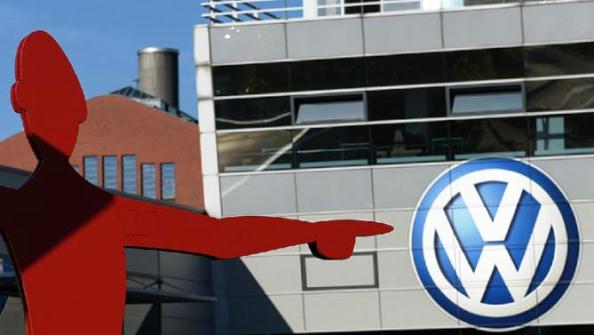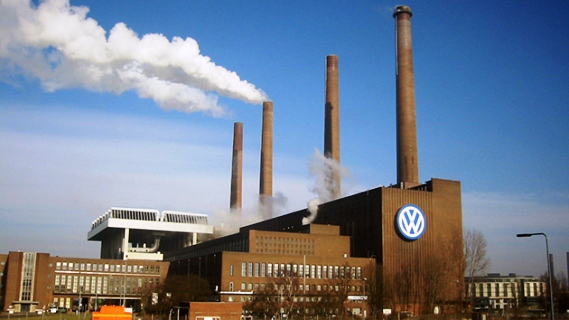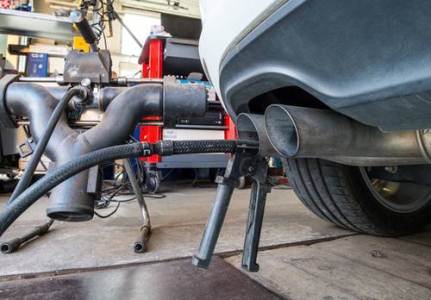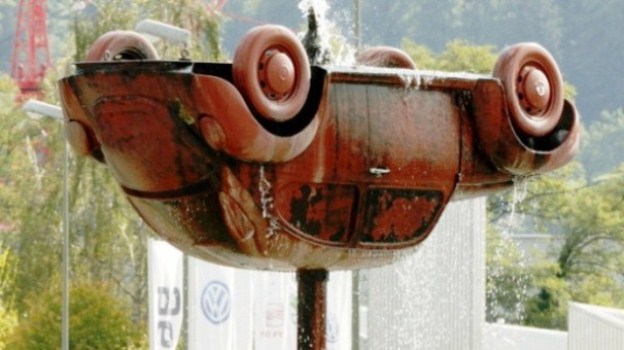Volkswagen (VW) is the second largest carmaker in the world”first, if one measures by the number of cars sold”and is the shining beacon of German excellence. Or rather was, as it recently suffered the kind of ignominy that is the nightmare of every spin doctor. On 18 September, VW admitted to US authorities that it cheated about the emissions of half a million diesel cars sold there. By the 22nd, this had snowballed into 11 million cars worldwide. The short version of this story is this: VW sold diesel VW and Audi cars with software that adhered to emission standards only when it was being subjected to tests. However, during normal driving, these cars would pollute up to 40 times the actual limit.
The US Environmental Protection Agency (EPA) could fine the company $37,500 per vehicle, and with 482,000 vehicles (from 2009 to 2015) as part of the investigation, the total fine could be $18 billion. VW probably will end up recalling all these cars and has said that it will stop selling 2015 and 2016 Volkswagen and Audi models equipped with 4-cylinder turbo-diesel engines. In the past, these cars were marketed as “clean diesel†and even championed as an alternative to the hybrid models espoused by rivals Toyota and Honda. At the time, VW had claimed that its cars, even without the standard urea injection system used by most manufacturers to reduce pollutants, could meet the required emission standards. Post the recent turn of events, VW’s diesel car ads have more or less disappeared. Even sponsored content on websites like Wired have magically ceased to exist. One can conclude that there is something called bad publicity after all.

Hoodwinking regulators
VW admitted to using a so-called ‘defeat device’ where the software involved is designed to conceal the actual amount of nitrogen oxide that is emitted when it detects that it is being tested (this link provides an explanation). Hark back to your high-school chemistry class and you will recall that nitrogen oxide is a fairly toxic compound – a pollutant leading to ozone and smog, both of which are linked to multiple health problems like asthma and respiratory diseases. With air pollution and global warming affecting each and every one us, it is expected of all companies to strictly adhere to mandatory standards set by regulatory bodies. And in an ideal world, that would have been the case. However, for diesel cars, such pollutant controls often mean higher costs and come at the expense of better performance, and it is now obvious which part held the higher priority for VW. An analysis by The Guardian suggests that this rigging may be responsible for nearly one million tonnes of air pollution every year.
What is even more interesting is that VW knowingly lied to the EPA for more than a year about its intentions, with the genteel explanation that the discrepancies between the tests and the actual driving results were due to technical errors. In fact, if not for a strange set of coincidences, VW probably would have gotten away with their cover-up. Two years ago, a little-known nonprofit environmental group called International Council on Clean Transportation found discrepancies in data while testing the performance of VW diesel cars in Europe. Since the United States had tougher norms on emission standards, they decided to replicate the tests there in order to prove that diesel could work well and be ecofriendly at the same time. They teamed up with reserachers from the West Virginia University who were looking to perform the same kind of tests. While the BMW car passed, the two VWs selected showed vastly differing results in the lab vis-Ã -vis actual on-road performance. Soon, California Air Resources Board came on board (California happens to have one of the toughest emission standards among all US states) and it was proved beyond doubt: VW was cheating.
Car industry against tougher standards
Ultimately, VW came clean only when regulators threatened to refuse further approval for their 2016 models. It is interesting to note that carmakers have regularly fought tighter safety regulations and emission standards. For instance, German carmakers had lobbied their government to push back on the Euro 7 regulations – expected to take effect in 2020 – for an additional four years. The Merkel government dutifully raised concerns, ostensibly over potential loss of jobs.

Volkswagen factory, Germany
European carmakers also sought a five-year delay on tougher CO2 emission standards targeted for 2025. It is not surprising then that Europe has far more lax norms for diesel cars as opposed to petrol variants. Countries like Japan and Germany are generally protective of their carmakers, which are a source of national pride and have been known to push for less stringent regulations. In the United States, carmakers lobbied hard against the 13-year federal programme of the EPA to deliver a fleet by 2025 that would cut in half the global-warming pollution of cars. Ironically, a new report by The Guardian claims that the United Kingdom, Germany and France lobbied the European Commission (the main decision maker on emission standards in the EU) to keep loopholes in antiquated car tests devised in 1970 which would increase real-world carbon dioxide emissions by 14 per cent above those claimed. The new tests eliminate these loopholes and are set to go live in 2017. All three countries have expressed their dismay at the VW cover-up and called for further investigations.
Implications for VW
While car recalls have become fairly common of late – think Toyota’s sticky gas pedals and GM’s ignition switch – something of this scale and such outright fraud are quite unprecedented in the car industry’s chequered history. And a potential fine of close to $18 billion will be hard for even a behemoth like VW to swallow. Even then, it is the loss of reputation and customer trust that will be the most difficult for VW to overcome. Already, about a third of VW’s market value has been wiped off. (For the non-car enthusiasts, apart from Audi, VW also owns Bentley, Porsche, Bugatti and Lamborghini, Scania and MAN heavy trucks, and Ducati motorcycles.) In a country like the United States, where VW has often struggled, the loss of 20 to 25 per cent of sales becomes significant. VW can look forward to investigations by the US Justice Department, European regulators and countries like South Korea and Australia, multiple class-action lawsuits, and a new CEO. The 6.5 billion euros set aside for this case is unlikely to be enough to cover the costs, not to mention the decreased revenues from lower sales. One can’t help but be reminded of the BP oil spill at Deepwater Horizon in 2010. Incidentally, VW has hired the same law firm that defended BP after their crisis.

German prosecutors have started investigating Martin Winterkorn, chairman of the board of directors of Volkswagen AG, to determine his role in the scandal.
As of now the damage is limited to diesel cars only, but there are warnings that similar fraud may have been going on with petrol cars as well.
In any case, the scandal doesn’t bode well for the future of diesel. Tougher standards may be implemented by regulators wordwide and there are already calls for a Europe-wide investigation, where almost half of the cars are diesel thanks to intense lobbying in 1997 by German carmakers to incentivise diesel over petrol and hybrid. The European Commission agreed and the result was the 1998 agreement between EC and European Automobile Manufacturers Association (ACEA) which legalised their demands.
Even before the VW scandal, there were signs that things were slowly changing. Many European cities were starting to take action against diesel vehicles. In fact, Paris mayor Anne Hidalgo had already announced plans to phase out all diesel vehicles from the city by 2020. Diesel’s purported benefits are unlikely to ouweigh its tremendous downsides.
How to continually hoodwink regulators
Although regulators like EPA have the power and authority, albeit limited, to investigate big corporations like VW, the fact that outright rigging and cheating still occurs is worrisome, both for governments and consumers. In this case, it was an NGO that was responsible for the exposé. As we have seen in the finance and tech worlds, regulators are usually one step behind the ingenuities, subterfuges and resources of powerful companies out to bend the rules. While often big fines are levied, until there are more serious consequences”like criminal prosecution”for such wrongdoings, things are unlikely to change when quarterly profits are all that matter.

For instance, the defeat devices have been in vogue since 1972, when Ford was fined $7 million by the EPA for violating rules by performing constant maintenance of its test cars, which did reduce emissions but would not have worked in the real world. VW and Chrysler were similarly found guilty in the same decade. Advocacy groups like European Federation for Transport and Environment have been maintaining for years that improvements in fuel efficiency and emission figures are just that – notional figures with no real-world implications. Last year, the group found that the difference between the lab and real-world results for diesel cars swelled to 40 per cent from 8 per cent in 2002.
The testing procedures followed in the European Union are hardly fool-proof, though. Car companies can actually choose who conducts the tests on their cars. Private companies can be”and are often”used. When power is vested in the manufacturers who have the luxury to shop around, it is not difficult to imagine scenarios where the most “flexible†and lenient testing firm gets the lucrative contracts. Although member states have regulatory powers, enforcement is another matter.
The United States performs slightly better. Carmakers are allowed to conduct their own tests and submit the results. But the EPA does its own random checking and it’s hardly surprising that most of the recent enforcements have been undertaken by it.
India’s (lack of) response
There seems to be little or no ripple effect of this scandal in India. Emission standards followed here are far lower than those in the United States or Europe. The government has not yet asked for additional tests to be performed on VW cars even when it has been confirmed that the same diesel engines are used in the US and Indian versions. Still, it is unlikely to be a cause for concern if we go by recent history. Most cars here are still operating under Bharat Stage III standard (BS IV-suitable fuel is not available everywhere), while Europe has moved to Euro 6 – Euro norms are nearly equivalent to the Bharat Stage norms. One can only assume that since the big Indian cities have already surpassed the rest of the world at being the most polluted, perhaps the government feels that there is little that can be done anyway.
BS V and VI standards are set to be implemented by 2019 and 2023, respectively, although Minister for Road Transport and Highways Nitin Gadkari has urged carmakers to jump from BS IV to BS VI directly. An encouraging idea, but unlikely to happen.
Although its market share is still quite small, VW has sales of over 100,000 per year in India and has reported impressive increases in its sales figures over the past few months. In China, VW sells less than 1,000 diesel cars a year as regulators there have discouraged production of diesel engines. A wise decision.
The big question
Modern democracies in developed countries are almost synonymous with capitalism, which in turn is inseparable from the concept of free markets. Of course, all of these countries provide enormous subisidies to corporations, in the form of tax breaks, underlying guarantees, etc., which has almost nothing to do with the actual concept of free markets. Integral to the ‘big government versus free markets’ debate is how much power or oversight should the government be allowed. Capitalist advocates will tell you that it is best for the markets to sort itself out without any external intervention. That inevitably leads to fewer regulations, and when the market doesn’t correct itself, as in the case of this VW cover-up, the question arises as to who shall police it and how. After all, one can always argue that VW did what the market demanded of it – good performance at a cheaper cost while causing minimal damage to people and nature. But often these two objectives are irreconcilable and it is not difficult to surmise which one is to be sacrificed at the altar of profit.

An upside-down Volkswagen Beetle, part of a fountain sculpture in front of a Volkswagen dealership, in the town of Buchs, Switzerland
Sanjana is CauseBecause feature writer and is based in Mumbai and Sydney (she manages). A professional day-dreamer and an inspired writer, her CV includes degrees from St Stephen’s College, Delhi, and Indian Institute of Management (IIM), Bangalore; and a four-year stint at American Express, Delhi.
Reach her at: sanjana@causebecause.com
